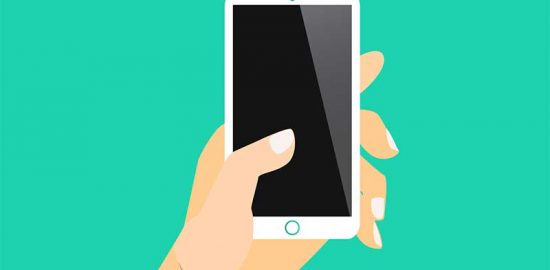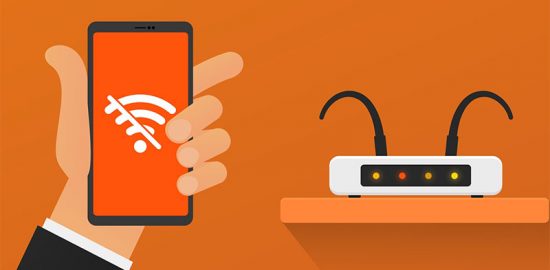Upgrading Your iPhone? Avoid These Scams When Selling Your Old One
Though it’s good economics to sell an old iPhone to offset the new model’s cost, it’s also easy to get scammed when selling pre-owned iPhones – especially if you don’t know what to look for.
We spoke with three pro eBay sellers to learn more about today’s worst iPhone scams plus how to spot red flags and avoid getting fleeced when you sell a pre-owned iPhone.
iPhone selling scams
Want to sell a pre-owned iPhone? Watch out for these scams.
1. Chargebacks
In this simple online scam, the perpetrator buys your phone and then files a chargeback claim through the marketplace or their credit card issuer.
“What we see are people that purchase your phone and then file a ‘not as described’ chargeback,” says pro eBay seller and TheWhizCells.com owner Travis May. “The seller loses those cases by and large. The buyer gets the item for free.”
Some scammers simply file a credit card chargeback. James Spears, Chief Executive Manager for Fair Trade Cellular, says the practice is especially pervasive with foreign buyers who use third-party shippers. Selling and shipping over international borders might make it difficult or impossible to reclaim your iPhone or your lost funds.
You can avoid this scam by selling to reputable buyers who have a history of positive reviews; or, sell to a buyback store instead of an individual on a peer-to-peer marketplace.
2. Returns and part robbing
Scammers buy phones via online marketplaces, then leverage buyer protection policies to return them for a full refund. However, they don’t return the original phone.
Spears says this scam is more common with international buyers on eBay and Amazon.
“A foreign buyer opens an eBay return after purchase, only to return something else or something of little value in the box,” he says. “One red flag is if you receive an odd, low-value Amazon shipment that you didn’t order.”
Perhaps more nefarious, some scammers will remove parts from your phone to resell or to repair their own phones. Then, they’ll put your phone back together and return it in non-working condition.
The best way to avoid this scam is to sell to a reputable buyback store or to an individual, in person, so that all sales are final.
3. Cloned IMEI
Although it can be a legitimate request – and one we recommend if you’re buying a phone – a scammer will ask for your IMEI so they can (ostensibly) make sure your phone isn’t reported lost or stolen. Once you give it to them, they’ll clone your IMEI on another device.
Cybercriminals can then use your cloned iPhone to send and receive phone calls using your wireless account, which means you’ll get charged for any paid features, and they can even intercept messages that could grant them access to your online banking, email and social accounts.
“Scammers may fish your IMEI and clone it on another device. It will impact the usability of your phone,” says Marco Mai, Head of Operations and Marketing at UpTrade. “I would recommend not giving out the information, although sometimes it may be a legit request.”
You can stop this scam by simply refusing to give out your IMEI. If a buyer demands it, sell to someone else.
4. PayPal lost or stolen reports
May says one scam he hasn’t seen in a while – but one you should keep an eye out for – is when a scammer says a legitimate phone was reported lost or stolen. To prove their claim, they’ll provide PayPal with the IMEI of a phone that actually was lost or stolen, and the seller will lose both their phone and their money.
“Someone buys a phone using PayPal, and then claims it to be reported lost or stolen,” he says. “PayPal may ask for the IMEI, but if the buyer has a phone that is reported lost or stolen, they will submit that IMEI number. When that happens, PayPal will not require a return and refunds the buyer.”
The easiest ways to avoid this scam? Only sell to reputable buyers who offer cash payouts.
5. Unusual circumstances
In what he calls “drama,” Mai says some scammers prey on sellers by convincing them they need help in a difficult circumstance – and they’ll offer to pay more for their charity.
“The scammer will make up stories like they are serving in the military outside of the United States. They need you to ship phones outside of the country, and they want you to call and talk to them offline. They will also promise to pay you an additional $50 or $100 if you can do so,” Mai says. “Most likely, they are trying to get you to ship the phone before paying anything. Once they receive the phone, they will disappear.”
The bottom line: treat any unusual circumstance as a red flag and walk away.
6. Bad checks
In one of the simplest in-person scams, a “buyer” will pay with a bad check. You’ll only find out when you try to cash it, but by then it will be too late. The scammer will be long gone with your phone.
The simplest way to avoid this scam is to refuse to accept checks.
7. Counterfeit cash
Similarly, some in-person scammers pay with counterfeit cash. This scam is a little more difficult to thwart unless you’re an expert in spotting fake bills, especially since some experts recommend accepting cash-only payments for in-person sales.
Since many pre-owned iPhones are worth $100 or more, it might be worth buying a counterfeit bill detector pen before you sell. You can find them for under $10 on Amazon.
8. Disappearing buyers
Though reputable buyers like online buyback stores require you to ship your phone before they issue payout, criminals can take advantage of unearned trust to swipe your iPhone.
For example, a crook could woo sellers on classifieds ads sites or even set up a fake buyback store. Once you ship your phone, they’ll stop responding to your messages and disappear. Without seller protections in place or any way to find the “buyer,” you could lose your iPhone and your payout.
Again, the best way to avoid this scam is to only sell to reputable buyers. If you’re selling to an individual, always get upfront cash before you ship.
9. Bait and switch
In the same vein, an unscrupulous buyback store might offer a high price for your iPhone. Once they receive it, however, they might claim it’s in a worse condition and submit a new, lower offer.
“The buyer tells you of a problem that definitely wasn’t there and offers less money,” says Spears.
Though revised offers are a legitimate aspect of the buyback business (many sellers misrepresent their phone’s condition), scammers can take advantage of it to convince you to sell your iPhone for less than it’s worth.
To avoid this scam, first evaluate your iPhone’s condition according to the buyer’s condition guide (most buyback stores and marketplaces have them). Then, cross reference condition with current prices listed on Flipsy, which compares offers from top buyback stores. Use the market data to your advantage so you can get what your iPhone is worth in any condition.
10. Robbery
Unfortunately, robbery is still a real concern for offline, in-person sales, and criminals can target anyone.
“I have personally been robbed meeting to purchase a phone,” says TheWhizCells.com’s Travis May.
Robberies can quickly turn dangerous, and the best way to avoid getting robbed is to refuse to meet anyone in person to begin with. Barring that, always take a friend a long and meet in a busy, well-lit public area.
Many local police departments have set up camera-monitored locations for safe trading. Check to see if your community has one, or search for nearby locations on SafeTradeSpots.
Tips to avoid getting scammed when you sell a pre-owned iPhone
Scammers aren’t discriminating and will target newbies and experienced sellers alike. Even pro eBay sellers aren’t immune.
“I have tried to sell an iPhone 7 on eBay as a personal user for 4 weeks and ran into 3 scammers in a row,” says Mai. “If the offer is too good, most likely it’s not true.”
As Spears puts it, “Even though we’ve been selling phones on eBay for over 10 years, we still get scammed to the point that we can’t recover our product or the money. It really is the wild west online, and there are no 100% guarantees of seller protection from eBay or anyone else. Sometimes you just lose and can’t do anything about it if you sell to the wrong person. eBay is better about buyer protections, but not so much sellers.”
Our experts shared the following tips to avoid getting scammed when you sell a used iPhone.
1. Be careful everywhere
Though some options are certainly safer than others, you should exercise caution with all potential buyers.
Check online reviews and avoid selling to anyone who doesn’t have positive feedback, says Spears, who adds: “You can refuse to sell to someone for any reason.”
While eBay and Amazon have seller protections, May cautions it’s important to understand eligibility requirements: “Unfortunately, both have holes in their protections and the seller can still be scammed.”
Scammers can also thrive on classifieds sites and apps like Craigslist, OfferUp and even Facebook Marketplace.
“eBay, Craigslist and OfferUp are on the top of list when talking about scammers,” says Mai.
Spears, Mai and May all said to be careful when meeting individuals face-to-face.
“Selling in person can be a good option for some people,” says May. “However, meeting has its own risk. You will want to meet in a well-lit area with people around.”
2. Meet in a safe place (and take a friend)
If you’re meeting an individual in person, be sure to only meet in a safe, well-lit, busy public area and take a friend along. Some police departments have set up safe trade zones that are monitored by cameras. See if your community has one, or search for local areas on sites like SafeTradeSpots.
“Meet somewhere safe and public,” says Spears. “Accept cash only and make sure the money isn’t counterfeit.”
3. Don’t give out your IMEI
If you’re selling your iPhone, Mai recommends not giving out your IMEI. Even though a buyer might have legitimate reasons to ask for it – including to check if it’s blacklisted or reported stolen – Mai says scammers can use it clone your iPhone.
That said, you might have a tough time selling your iPhone to an individual buyer if you won’t give up its IMEI. The best way around that is sell to a buyer who doesn’t require it. Most online buyback stores don’t ask for your IMEI, since they’ll view it themselves once they receive your iPhone.
4. Reject offers that are too good to be true
Find an unbelievable deal? It probably is.
“If the offer is too good, most likely it’s not true,” says Mai, who recommends checking websites like Flipsy and UpTrade to find the true market value of any given iPhone.
Knowing what the phone is worth is a good way to set expectations for a realistic deal, and can help you avoid getting scammed by unbelievable offers.
5. Use seller protection
Our pro eBay sellers all said it’s important to take advantage of seller protections. Be sure to understand eligibility requirements and how to file a claim before you agree to sell an iPhone, and be aware that buyer protections are often more robust than seller protections.
If you’re selling offline, watch out for counterfeit bills. It might be worth investing $10 in a counterfeit bill detector pen.
6. Look up reviews
Online reviews and buyer feedback can lend confidence you’re dealing with a legitimate buyer versus a scammer.
“eBay and Amazon have a feedback system as well as Facebook Marketplace,” says May. “Companies usually will have reviews on Reseller Ratings, Google Ratings or Trustpilot.”
Spears recommends refusing to sell to anyone who does not have feedback as well as those who have foreign addresses or an address that looks like it’s for a third-party shipper.
“Review feedback left for the buyer before shipping,” he says. “Don’t sell to a buyer with bad reviews.”
7. Know your phone
If you’re selling your iPhone, make sure you know its specs and what it’s worth before you ship it.
Though legitimate buyback stores often send revised offers on misrepresented phones, shady players in the industry can take advantage of that to get you to pay less than your phone is worth.
“Inspect your phone yourself before shipping it,” says Spears. “If you receive a revised offer, ask for photo proof if possible. Ask for your phone back if you feel the buyer is lying, and verify the issue when you receive it. Leave negative feedback if the buyer was lying.”
8. Accurately represent your phone’s condition
Similarly, you need to accurately represent your phone’s condition when you’re selling it. Otherwise, you might think you’re the victim of a scam when in fact you are the one who misrepresented your phone.
“Sell to the buyer paying the most for your phone’s actual condition, not the condition you wish it was in,” says Spears. “A buyer who is paying the most for a phone in flawless condition might be paying the least for a phone with scratches and a bad earpiece, which is fair. Different buyers are looking for different things because they have different markets.”
9. Report scams
If you do get scammed, report it to local law enforcement as well as the marketplace you were scammed on, if applicable – but don’t hold your breath waiting to get your money or your phone back.
“If you get scammed, contact the marketplace if necessary for a solution,” says Spears. “But be prepared for them to not provide any protection. You may lose your money if you sell to the wrong person.”
At the end of the day, the best option is to take precautions to avoid getting scammed in the first place.
“Looking up the reviews of the different options is always a good idea,” says May. “The lowest risk options are selling to buyback stores.”
Related Help
Next: Refurbished iPhone 12: How to Get the Cheapest iPhone 12 in Refurbished Condition

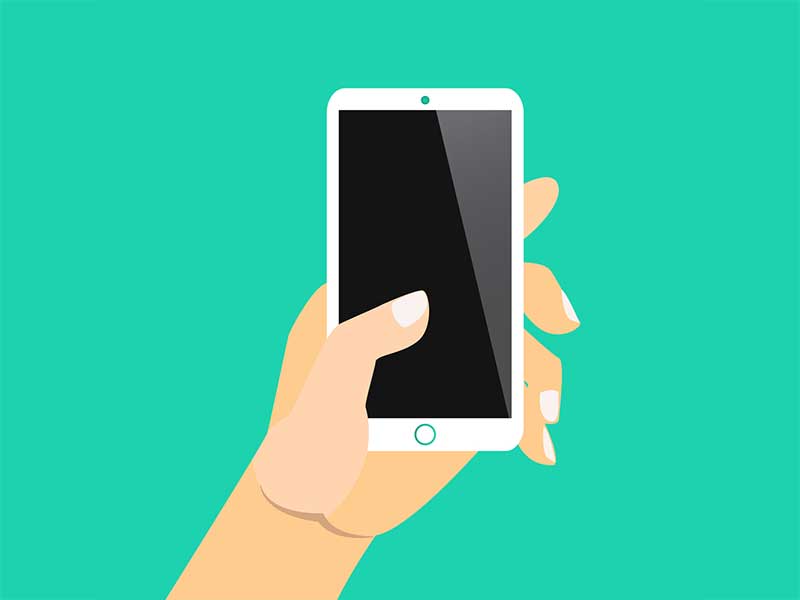 iPhone Won’t Turn On? Here’s Why & How to Fix It
iPhone Won’t Turn On? Here’s Why & How to Fix It  How to Know If Your Phone Has a Virus & How to Remove It
How to Know If Your Phone Has a Virus & How to Remove It 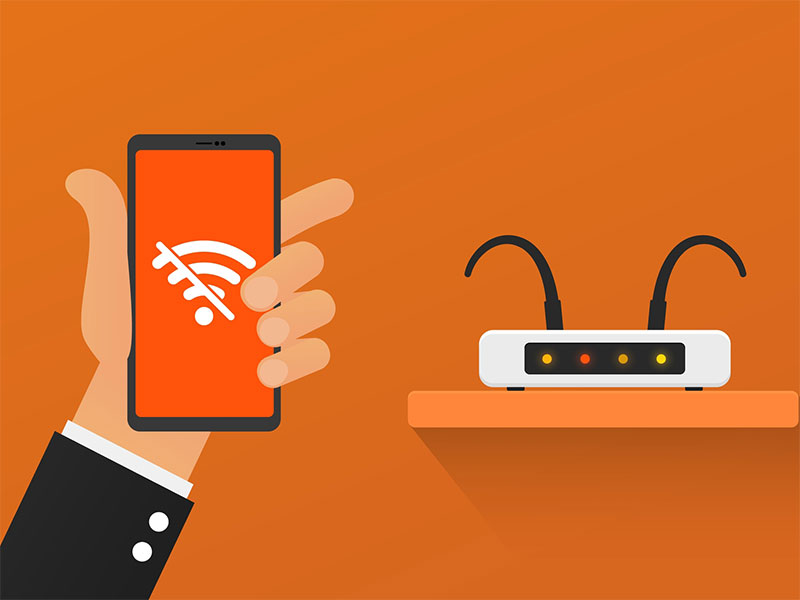 iPhone Won’t Connect to WiFi? Here’s How to Fix It
iPhone Won’t Connect to WiFi? Here’s How to Fix It 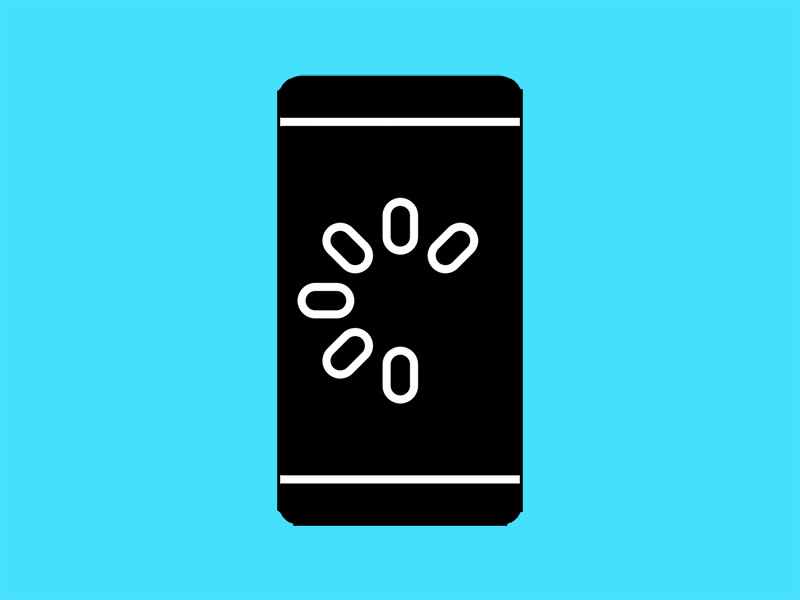 Why Your Phone is Slow & How to Speed It Up
Why Your Phone is Slow & How to Speed It Up 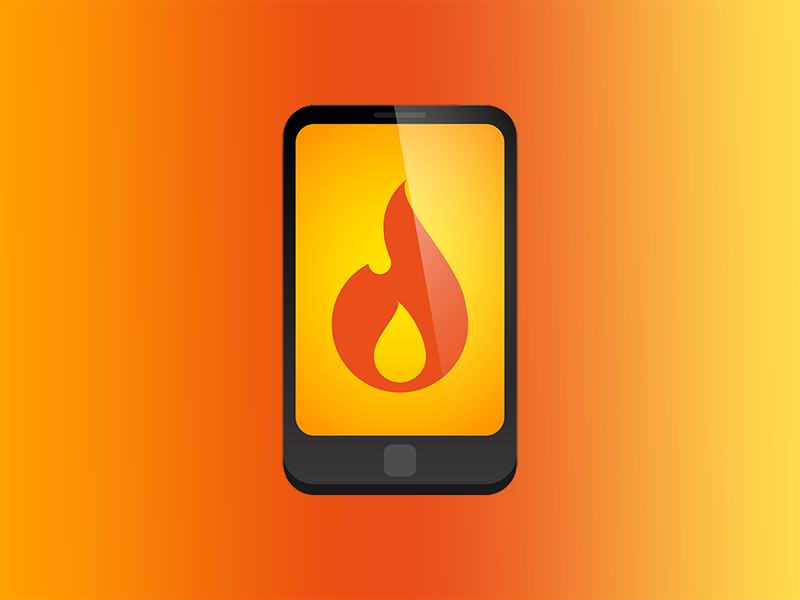 What Is a Burner Phone & When Should You Use One?
What Is a Burner Phone & When Should You Use One? 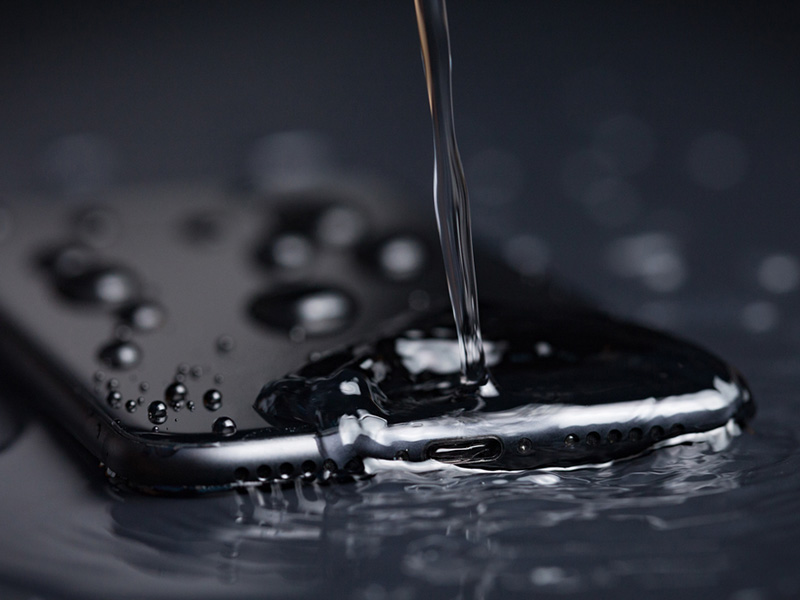 iPhone Water Damage Repair: 3 Options & What They Cost
iPhone Water Damage Repair: 3 Options & What They Cost 